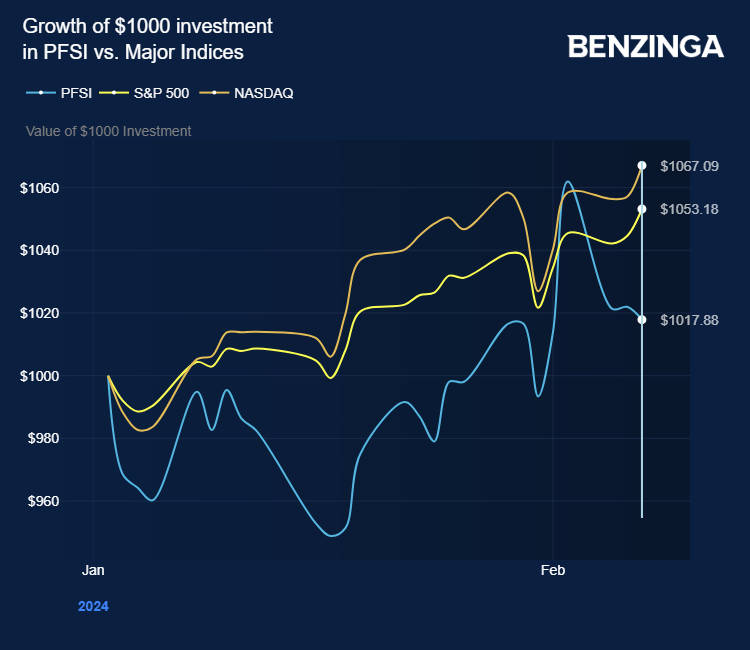Zinger Key Points
- Non-bank lenders rely on short-term funding instruments such as Treasury bills and commercial paper.
- Smaller banks are already feeling the strain, with a run of collapses in 2023, which included Silicon Valley Bank and First Republic Bank.
- Join Chris Capre on Sunday at 1 PM ET to learn the short-term trading strategy built for chaotic, tariff-driven markets—and how to spot fast-moving setups in real time.
U.S. Treasury Secretary Janet Yellen warned on Thursday of the potential failure of non-bank lenders if household finances became stretched and the rate of delinquencies on loans rises.
Speaking before a Senate Committee on Banking, Housing and Urban Affairs, the former Federal Reserve chair warned that the risk of failure of one or more of them in the sector was possible if the lending market became strained.
Non-bank lenders rely on short-term funding instruments such as Treasury bills and commercial paper, and they don’t have access to the Fed’s emergency lending facility. Yellen said regulators were monitoring the risks.
She said: “They're reliant on short-term financing that may be a lot less stable than deposits, and in stressful times, their credit lines can be pulled.”
Also Read: Janet Yellen Champions Biden’s Economic Triumphs At Senate
Household Debt Hits Record High
Recent data from the New York Federal Reserve shows that U.S. household debt hit a record high of $17.5 trillion at the end of 2023, with mortgage debts and credit card balances hitting highs of $12.24 trillion and $1.13 trillion, respectively.
Delinquency rates increased in nearly all types of debt, with the overall rate up to 3.1%.
This could spell bad news for non-bank lenders such as Freedom Holding Corp. FRHC, LoanDepot Inc LDI and PennyMac Financial Services PFSI, should the delinquency rate rise further.

Non-banks accounted for around half of funded mortgage loans in 2022.
Regional Bank Strains
Smaller banks are already feeling the strain, with a run of collapses in 2023, which included Silicon Valley Bank and First Republic Bank.
And this week, shares in New York Community Bancorp, Inc. NYCB plunged as it brokered with larger rivals to sell off a portion of its mortgage risk, worth around $5 billion, to shore up its finances.
In just the last nine trading sessions the SPDR S&P Regional Banking ETF KRE, an exchange traded fund that includes New York Community Bancorp, is down 11%.
Despite her warning on non-bank lenders, Yellen told the committee the financial system in the U.S. is well-capitalized and overall sound.
Now Read: Cash Homebuyers Beware: Anti-Money Laundering Feds Are Watching
Photo: Shutterstock
Edge Rankings
Price Trend
© 2025 Benzinga.com. Benzinga does not provide investment advice. All rights reserved.
Trade confidently with insights and alerts from analyst ratings, free reports and breaking news that affects the stocks you care about.